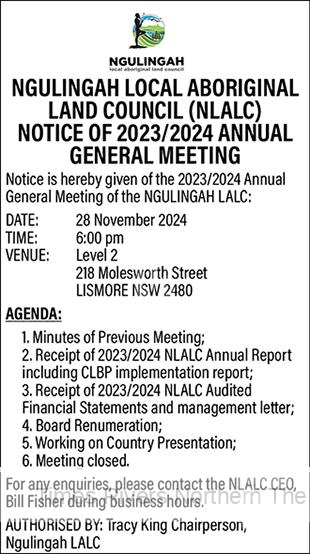Role of pharmacists to expand to ear infections; nausea; acid reflux; acne; muscle and joint pain
Thousands of people across NSW will be able to access treatment for ear infections, wound management, nausea, gastro, acne, muscle and joint pain at their local pharmacy, boosting access to fast, convenient healthcare across NSW as the role of pharmacist expands.
Health Minister Ryan Park announced at the Pharmacy Guild’s Pharmacy Connect Conference last night in Sydney that work is underway to expand pharmacists’ scope of practice.
That including the following conditions:
- Acute otitis media (middle ear infection)
- Acute otitis externa (outer ear infection)
- Acute minor wound management
- Acute nausea and vomiting
- Gastro-oesophageal reflux and gastro-oesophageal reflux disease (GORD)
- Mild to moderate acne
- Mild, acute musculoskeletal pain
Subject to appropriate training and ongoing work in implementation work, the expanded role of pharmacist service delivery could commence as soon as 2026.
NSW Health is consulting with universities on the development of suitable training as well as the Pharmaceutical Society of Australia on request supports for pharmacists.
This is including:
- Condition specific training; and
- Upskilling in clinical assessment, diagnosis, management and clinical documentation.
NSW Health has also agreed to authorise individual pharmacists who have successful completed the Queensland pilot training to deliver selected services in NSW from January 2025 onwards.
More than 490 pharmacies across the state have participated in the oral contraceptive pill trial since it began, delivering more than 1,800 consultations to women in NSW.
This follows the successful completion of the first phase of the trial in May 2024, which saw more than 3,300 NSW pharmacists provide more than 18,000 consultations to women aged 18 to 65 with symptoms of uncomplicated urinary tract infection (UTI). The UTI service transitioned to usual pharmacy care from 1 June 2024.
The third and final phase of the trial allowing pharmacists to manage common minor skin conditions is underway and will be running until early 2025.
A detailed evaluation of all three phases of the NSW Pharmacy Trial will be provided to NSW Health in 2025 and will inform future expansion of services.
Expanding the scope of practice of pharmacists forms part of the NSW Government’s broader efforts to alleviate pressure on GPs.
According to the Federal Department of Health & Aged Care, there were fewer GPs in NSW in 2023 than there were in 2019.
The GP shortage is having a significant impact on the state’s emergency departments.
While the Minister for Health continues to work with the Commonwealth on the challenges facing primary care, for its part, the NSW Government just this week announced the commencement of its Bulk Billing Support initiative.
It also follows the NSW Government’s half a billion dollar emergency department relief package announced in the state budget in June, which seeks to build more pathways to care outside the hospital, as well as improving patient flow within our hospitals.
Quotes attributable to the Minister for Health Ryan Park
“We know that it is becoming more difficult to access a GP than ever before, with people often waiting days or even weeks before they can find an appointment.
“By empowering pharmacists to undertake consultations on more conditions, we can relieve the pressure on GPs and end the wait times.
“People should be able to access treatment as and when they need it, and the expansion of this important initiative will improve access to care.”
Quotes Attributable to Pharmacy Guild of Australia NSW Branch President David Heffernan
“Whether it’s providing ten million vaccinations during COVID or treating over 18,000 uncomplicated UTIs over the past year, pharmacists have shown that they are able to offer more of the everyday healthcare patients need.
“These changes will mean that patients aren’t forced to present to hospital for a simple ear infection just because their GP can’t see them.
“It’ll mean easier access to everyday healthcare for everyone in New South Wales.”
Quotes attributable to Pharmaceutical Society of NSW President Luke Kelly
“The Pharmaceutical Society of Australia thanks Minister Park and the NSW Government for the confidence they have shown in pharmacists following the success of the NSW Pharmacy Trial, and for leveraging pharmacists’ expertise to expand access to health care.”
“NSW residents will benefit from more timely access to care for a broader range of conditions at their community pharmacy.”
“PSA is committed to workforce preparation, including training, education, practice support and upskilling of pharmacists to undertake and deliver these services.”
Quotes attributable to Member for Heathcote Maryanne Stuart MP
“Families from across the Heathcote electorate have been telling me how difficult access to General Practitioners has become in recent years.
“We know that the GP shortage is hurting families in New South Wales and that the NSW Government needs to do what it can to make access to everyday healthcare easier.
“That’s why I’m so proud to be part of a Government that is taking action and empowering our highly skilled pharmacist workforce to play a larger role in healthcare.”
For more health news, click here.





 Tweed Shire News2 years ago
Tweed Shire News2 years ago
 Motoring News2 years ago
Motoring News2 years ago
 COVID-19 Northern Rivers News3 years ago
COVID-19 Northern Rivers News3 years ago
 COVID-19 Northern Rivers News3 years ago
COVID-19 Northern Rivers News3 years ago
 Northern Rivers Local News3 years ago
Northern Rivers Local News3 years ago
 Health News3 years ago
Health News3 years ago
 COVID-19 Northern Rivers News3 years ago
COVID-19 Northern Rivers News3 years ago
 NSW Breaking News3 years ago
NSW Breaking News3 years ago



























